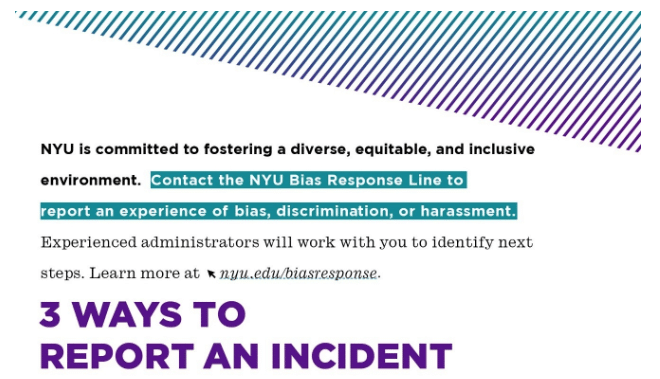Free speech and free expression more generally can sometimes be hurtful, but absent findings of libel, slander, true threats or incitement to imminent lawless action, most such speech is protected by the First Amendment.
Approximately 450 U.S. colleges and universities have, however, adopted bias response teams that have been challenged on the basis that they chill speech in violation of the First Amendment.
Over the last two years, the U.S. Supreme Court has twice turned down opportunities to review such policies, even though lower courts have issued conflicting decisions on them.
Speech First, Inc. v. Sands involved Virginia Tech
In Speech First, Inc. v. Sands, 601 U.S. ____ (2024), the Supreme Court accepted a writ of certiorari but remanded the case back to the 4th U.S. Circuit Court of Appeals with instructions to dismiss the claims as moot because the challenged institution, Virginia Tech, had changed its policies.
Justice Ketanji Brown Jackson indicated that she would have rejected the petition for cert, whereas Justice Clarence Thomas authored a dissent that was joined by Justice Samuel Alito, which expressed clear concern about the policies.
Thomas explained that Virginia Tech’s policy had encouraged students “to report one another for expressions of ‘bias.’” A “bias intervention and response team” of university officials could then investigate and even report students for discipline or to the police.
4th Circuit found bias response teams did not violate free speech
Speech First, an organization devoted to protecting student speech, had challenged this policy on the basis that it had a chilling effect on speech that could cause self-censorship. The 4th Circuit had ruled in favor of the university on the basis that the bias response team had neither the authority to discipline nor to punish students and that the policy had not been administered in a heavy-handed fashion.
Justice Thomas disagreed with this policy for three reasons. First, he found that “the university’s bias response policy appears limitless in scope.” He pointed out that it could even respond to jokes and expressions of political opinion. Second, he thought that the provision for anonymous reporting resulted in no “social costs” to those who did so and even applied to off-campus expression. Third, he noted that the bias response team reports were part of a student’s permanent file. This would likely lead to student self-censorship.
Another case challenged Indiana University bias response team
In the second case, Speech First, Inc. v. Whitten, 604 U.S. ____ (2025), the Supreme Court denied a writ of certiorari to those who challenged the bias response team at Indiana University (IU). Justices Alito and Thomas dissented from this denial, with the latter again authoring his dissent in this case.
The circumstances were similar to the Virginia Tech case except that the 7th U.S. Circuit Court of Appeals had refused to issue the preliminary injunction requested by Speech First since it had previously denied a similar request from the University of Illinois at Urbana-Champaign for lack of standing. It had decided that plaintiffs had not shown a credible enforcement threat since any meetings with students were optional and the team had no enforcement power. The plaintiffs accordingly had no “injury-in-fact” standing.
Pointing out that three other circuits had found that such policies did chill campus speech, Thomas thought the Supreme Court should resolve the issue. Citing the Court’s decision in Laird v. Tatum (1972), Thomas argued: “It is well settled that plaintiffs may establish standing based on the deterrent, or ‘chilling,’ effect of governmental regulations that fall short of a direct prohibition against the exercise of First Amendment rights.”
Thomas further pointed to the danger of student self-censorship,” noted that the costs of reporting (especially anonymous reporting) were both “intentionally low” and “socially costless.”
Thomas saw no complicating factors that might hamper review in the case and feared that the Court’s unwillingness to intervene in the face of conflicting precedents “leaves students subject to a ‘patchwork of First Amendment rights,’ with a student’s ability to challenge the university’s bias response policies varying depending on accidents of geography.”
John R. Vile is a political science professor and dean of the Honors College at Middle Tennessee State University.

